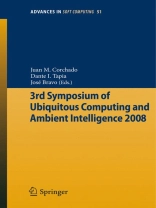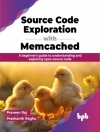The Symposium on Ubiquitous Computing and Ambient Intelligence (UCAm I) began as a workshop held in 2003 in San Sebastián (Spain) under the Spanish Artificial Intelligence Conference. This event gathered 32 attendees and 18 papers were p- sented. The second edition, already as a Symposium, took place in Granada (Spain) under the first Spanish Computer Science Conference (CEDI). Later, in 2006, a s- ond workshop was celebrated in Ciudad Real and, in 2007; the second Symposium was organized in Zaragoza by the CEDI conference. Now we continue to work on the organization of this event in Salamanca, a beautiful Spanish city. The European Community and the Sixth and Seventh Framework Programs – courage researchers to explore the generic scope of the Am I vision. In fact, some researchers have a crucial role in this vision. Emile Aarts from Philips describes – bient Intelligence as ‘the integration of technology into our environment, so that p- ple can freely and interactively utilize it’. This idea agrees with the proposal of Mark Weiser regarding the Ubiquitous Computing paradigm.
สารบัญ
A Framework for the Reconfiguration of Ubicomp Systems.- HI3 Project: Software Architecture System for Elderly Care in a Retirement Home.- An Architecture for Secure Ambient Intelligence Environments.- An Architecture for Ambient Intelligent Environments.- A Hardware Based Infrastructure for Agent Protection.- Performance Evaluation of J2ME and Symbian Applications in Smart Camera Phones.- Extended Bluetooth Naming for Empowered Presence and Situated Interaction with Public Displays.- Infrastructural Support for Ambient Assisted Living.- ALZ-MAS 2.0; A Distributed Approach for Alzheimer Health Care.- Ambient Assisted Living.- Quality of Service in Wireless e-Emergency: Main Issues and a Case-Study.- Sentient Displays in Support of Hospital Work.- University Smart Poster: Study of NFC Technology Applications for University Ambient.- Touching Services: The Tag-NFC Structure.- Interaction by Contact for Supporting Alzheimer Sufferers.- Secure Integration of RFID Technology in Personal Documentation for Seamless Identity Validation.- Semantic Model for Facial Emotion to Improve the Human Computer Interaction in Am I.- Bridging the Gap between Services and Context in Ubiquitous Computing Environments Using an Effect- and Condition-Based Model.- Modeling the Context-Awareness Service in an Aspect-Oriented Middleware for Am I.- An Agent-Based Component for Identifying Elders’ At-Home Risks through Ontologies.- Risk Patient Help and Location System Using Mobile Technologies.- ATLINTIDA: A Robust Indoor Ultrasound Location System: Design and Evaluation.- Standard Multimedia Protocols for Localization in “Seamless Handover” Applications.- Location Based Services: A New Area for the Use of Super-Resolution Algorithms.- Developing Ubiquitous Applications through Service-Oriented Abstractions.- Flexeo: An Architecture for Integrating Wireless Sensor Networks into the Internet of Things.- A Mobile Peer-to-Peer Network of CBR Agents to Provide e-Assistance.- An Ambient Assisted-Living Architecture Based on Wireless Sensor Networks.- HERMES: A FP7 Funded Project towards Computer-Aided Memory Management Via Intelligent Computations.- Reinforcement Learning of Context Models for a Ubiquitous Personal Assistant.- An Approach to Dynamic Knowledge Extension and Semantic Reasoning in Highly-Mutable Environments.- Learning Accurate Temporal Relations from User Actions in Intelligent Environments.- Advanced Position Based Services to Improve Accessibility.- PIVi Ta: Taxonomy for Displaying Information in Pervasive and Collaborative Environments.- Data Management in the Ubiquitous Meteorological Data Service of the America’s Cup.- A Proposal for Facilitating Privacy-Aware Applications in Active Environments.- People as Ants: A Multi Pheromone Ubiquitous Approach for Intelligent Transport Systems.- A System of Cooperation Based on Ubiquitous Environments for Protection against Fires in Buildings.- CARM: Composable, Adaptive Resource Management System in Ubiquitous Computing Environments.- Mobile Habits: Inferring and Predicting User Activities with a Location-Aware Smartphone.












